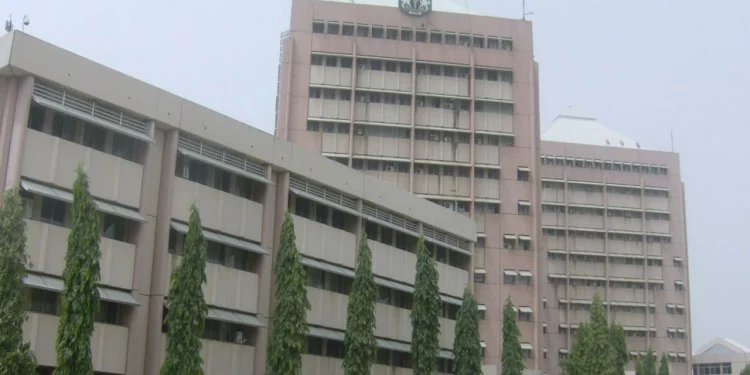Just when many Nigerians thought budget padding had become a thing of the past, the Independent Corrupt Practices and Other Related Offences Commission (ICPC) recently disclosed that the 2021 budget totaling N13.59 trillion was padded by civil servants in the various Federal Ministries, Departments, and Agencies (MDAs), with duplicated projects worth N300 billion.
Additionally, the anti-graft agency also disclosed that projects’ duplication worth N100 billion were also inserted into the N17.12trillion 2022 budget by some MDAs.
The ICPC further disclosed that a whopping N49.9 billion was tracked as salaries paid to ghost workers between January and June this year.
We recall that, recently, a former Accountant-General of the Federation, Ahmed Idris, was arrested and is on trial for his alleged involvement in a N174 billion fraud.
Compounding these rings of sleaze, last year, ICPC informed the nation that it successfully recovered 301 houses from two public officers in the nation’s Federal Capital Territory (FCT), Abuja.
The Senate Committee on Ethics, Privileges, and Public Petitions recently said its findings after interfacing with government agencies revealed that corruption is more endemic in the civil service than in other sectors.
According to the chairman of the committee, Senator Ayo Akinyelure (PDP, Ondo), civil servants are more corrupt than the political class. Though this ought not to be a comforting statement, it however gives the citizens who have to bear the brunt of this misapplication of funds a lot of food for thought even if there is none for the stomach.
In the opinion of this newspaper, it is trite to even begin to wonder how civil servants are able to steal these humongous amounts of money with reforms like the treasury single account (TSA) and Integrated Personnel and Payroll Information System (IPPIS) in place.
Curiously, it is the the civil servants who are expected to drive the agenda of any administration. However, the biggest malfeasance and corrupt practices seem to be going on in the same civil service.
Needless to say, no country has ever truly developed without a first-class civil service. It’s no secret that many choice properties in the FCT are owned by civil servants.
Indeed, the administration of President Muhammadu Buhari cannot successfully fight corruption with a compromised civil service.
It is instructive to note that Nigeria earlier this year dropped five places in the 2021 Corruption Perceptions Index (CPI) ranking released by Transparency International (TI).
The country, scoring 24 out of 100 points, ranked 154 out of 180 countries surveyed, falling back five places from the rank of 149 in 2020 placing as the second most corrupt country in West Africa.
It is Nigeria’s second consecutive year of a downward spiral on the TI’s CPIranking, the country’s score has dropped from 26 in 2019 to 25 in the 2020 assessment, and further to 24 in the latest 2021 record.
The CPI is TI’s tool for measuring the levels of corruption in the systems of various countries around the world. The maximum points a country can score is 100 points, and the least is zero. Zero signifies the worst performing countries and 100, the best-ranked.
The ranking may be an indicator that corruption in the country has gotten worse over the years.
According to experts, the reasons for corruption in the civil service include weak institutional structures, cumbersome administrative procedures, lack of a culture of accountability, negative attitude of the civil servants to work, and individuals’ insatiable appetite for wealth at all costs.
Others are weak institutional structures, cumbersome administrative procedures, negative attitudes of civil servants, and non-disclosure of information unless someone pays for it.
Sadly, despite the various reforms taken by successive administrations, the story has not changed, it is a case of all motion and no movement.
In our considered opinion, there needs to be stricter punishment for corrupt civil servants. Most people are not punished for bad behaviors to serve as a deterrent and when they are eventually prosecuted, it is usually a slap on the wrist. This has to stop.
Enforcement of rules and laws will go a long way in curbing corruption in the civil service.
We, therefore, call for the speedy digitalisation of the civil service. Also the elevation of meritocracy over nepotism. Building strong institutions will also serve as checks and balances for corrupt individuals.
Consequently, the cleansing and reformation of the civil service are essential for Nigeria to achieve its potential.



